June 21, 2025 | 01:39 GMT +7
June 21, 2025 | 01:39 GMT +7
Hotline: 0913.378.918
June 21, 2025 | 01:39 GMT +7
Hotline: 0913.378.918
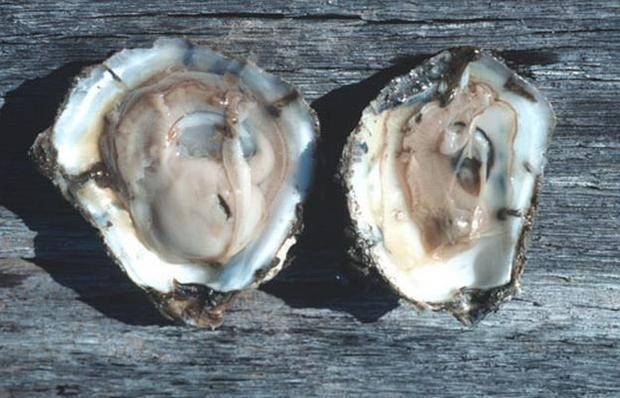
The oyster infected with Perkinsus Marinus is on the right. Photo: HB.
Oyster seed farming appeared in Kim Son district about six years ago. From the beginning, there were only a few small farms run by local people for experimental raising. Since initial effectiveness, many people have boldly invested in material facilities and expanded farms. As of now, there have been about 400 oyster hatchery farms, concentrated mainly in Kim Dong, Kim Hai, and Kim Trung communes.
According to Mr. Vu Truong Thu, Chairman of the Kim Trung Commune People's Committee, the total aquaculture and production area in the commune has continuously increased in recent years. In 2020, there were only 76 facilities participating in production, with an area of nearly 50 hectares. However, by 2023, there were 169 facilities with an area of up to 130 hectares, accounting for nearly half of the total seafood production area of the entire commune.
"Seed productivity in Kim Trung reaches about 7.6 million seeds/ha. Farmers currently earn a profit of VND 300–400 million/ha/year. Particularly, some households earn up to VND 1 billion/year," Mr. Thu said.
Oyster seed production is a new direction that brings high economic efficiency without affecting the environment. In particular, the quality of oyster seeds in Kim Son is much better than that of imported oysters as well as oysters produced in other localities. Therefore, the seed has a higher selling price and is favored in most provinces of Quang Ninh, Hai Phong, etc.
However, oyster seed production in Kim Son still faces many difficulties in environmental conditions, parent seed sources, asynchronous infrastructure, and the irrigation system serving aquaculture, which still has many inadequacies. Many farming households are still spontaneous, leading to potential risks of disease. Of which, the most dangerous is Perkinsus Marinus disease.
According to Mr. Pham Huy Trung, an officer of the Ninh Binh Sub-Department of Fisheries who was "seconded" to Kim Son district, Perkinsus Marinus is a disease caused by the protozoan parasite Perkinsus. The disease, which causes serious damage to mollusks on a global scale, is listed as a disease requiring declaration and quarantine in oysters in particular and mollusks in general by the World Organization for Animal Health.
Perkinsus Marinus parasitizes the gill, mantle, intestinal epithelial cells, connective tissue organizations of the digestive gland, and gonads of bivalve mollusks. It is transmitted directly between mollusks without the need for vectors. The speech of the transmission is fast. Perkinsus Marinus was first found on oysters, then on scallops, clams, and abalone.
When disease-infected, symptoms will appear on oysters, such as thin shells, watery tissue, a shrunken mantle, and pale digestive glands. Parasitic spores appear as white-brown papules or cysts on the surface of the mantle and gills, causing severe damage and congestion on the gill, intestinal tissue, and connective tissue of the oyster.
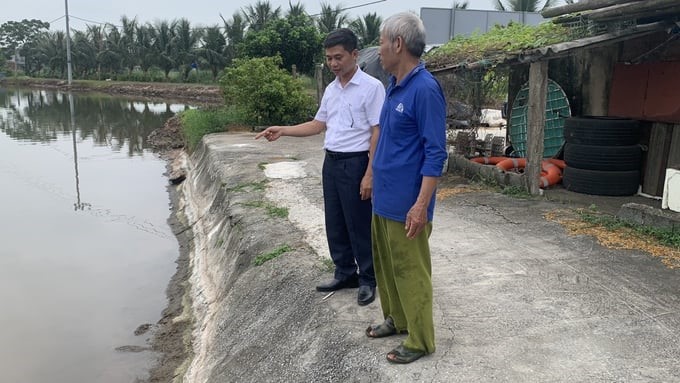
Mr. Pham Huy Trung, officer of the Ninh Binh Sub-Department of Fisheries (left), exchanges with aquaculture households in Kim Son district. Photo: Huy Binh.
Mr. Trung said, according to research by fisheries experts, Perkinsus Marinus disease occurs on bivalve mollusks such as oysters, mussels, and clams. One of the main reasons why the disease easily arises is high-density intensive farming.
Notably, this disease occurs all year round but is most concentrated in the autumn and least in early spring, when the environmental temperature is above 20oC and the salinity is from 9 to 12 parts per thousand. Infection intensity increases highly when the environmental salinity increases to above 12 parts per thousand. Bivalve mollusks are infected at high rates, with mortality rates of up to 95% when environmental conditions are unfavorable to the animal host.
In Vietnam, Perkinsus Marinus was first discovered on undulated surf clams in the waters of Kien Giang and Ba Ria-Vung Tau in 2007. By 2010, it continued to be discovered on clams in Can Gio district, Ho Chi Minh City.
In 2015, Perkinsus disease swept the clam farming area in Ben Tre, causing extremely heavy damage. According to test results from the Research Institute for Aquaculture No. 2, the death of the clams was due to infection with the Perkinsus parasite. The rate of parasitic infection was very high in all tested samples (80–100%).
According to a report by the Ben Tre Department of Agriculture and Rural Development, the total damage area due to Perkinsus disease is more than 1,000 hectares. The common damage rate is 30–40% of the number of clams on the beach, and the damage is estimated at nearly 1,500 tons. Particularly, there are cooperatives that lost 100% of their farming area.
Translated by Huyen Vu Thu
![Turning wind and rain into action: [10] Advancing accessible climate services for farmers](https://t.ex-cdn.com/nongnghiepmoitruong.vn/608w/files/linhnhp/2025/06/20/1911-z6704423696987_15fd32ffc26d590d204d520c9dac6786-nongnghiep-161854.jpg)
(VAN) Not only does it help farmers 'avoid droughts and rains,' the development of agricultural climate services also enhances their ability to proactively adapt to a rapidly changing climate.
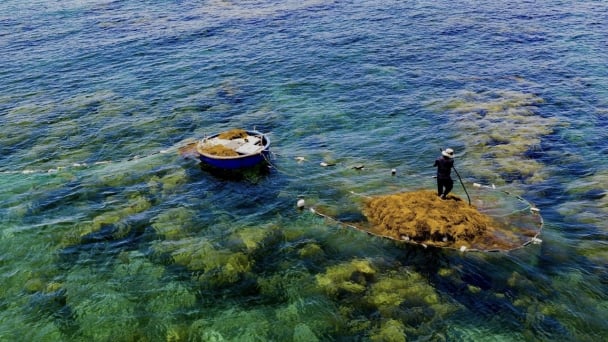
(VAN) With international assistance, the harvesting of sargassum seaweed in Quang Ngai has become increasingly regulated, thereby safeguarding marine life and ensuring the stability of coastal communities' livelihoods.
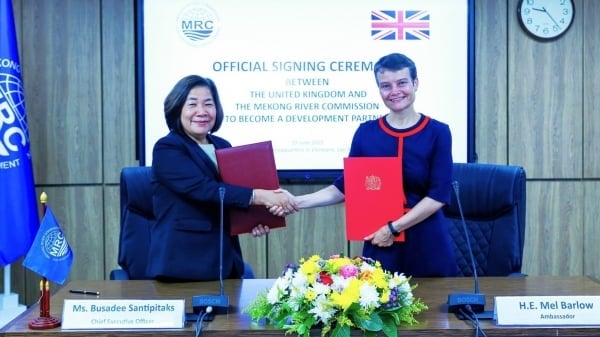
(VAN) On June 19, the United Kingdom officially became a Development Partner of the Mekong River Commission.

(VAN) Biodiversity is being threatened by traditional remedies made from wildlife. Traditional medicine and humans must change to live in harmony with nature.

(VAN) Agrifood investment and finance solutions for people and the planet.

(VAN) Microplastic contamination has become pervasive in seafood, posing unprecedented challenges for food safety and marine ecosystems.
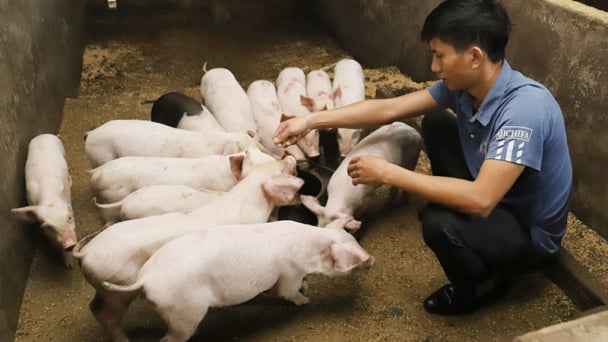
(VAN) Proactively using vaccines, combined with transport control and enhanced surveillance, is the only viable path toward biosecure and sustainable livestock production in Vietnam.